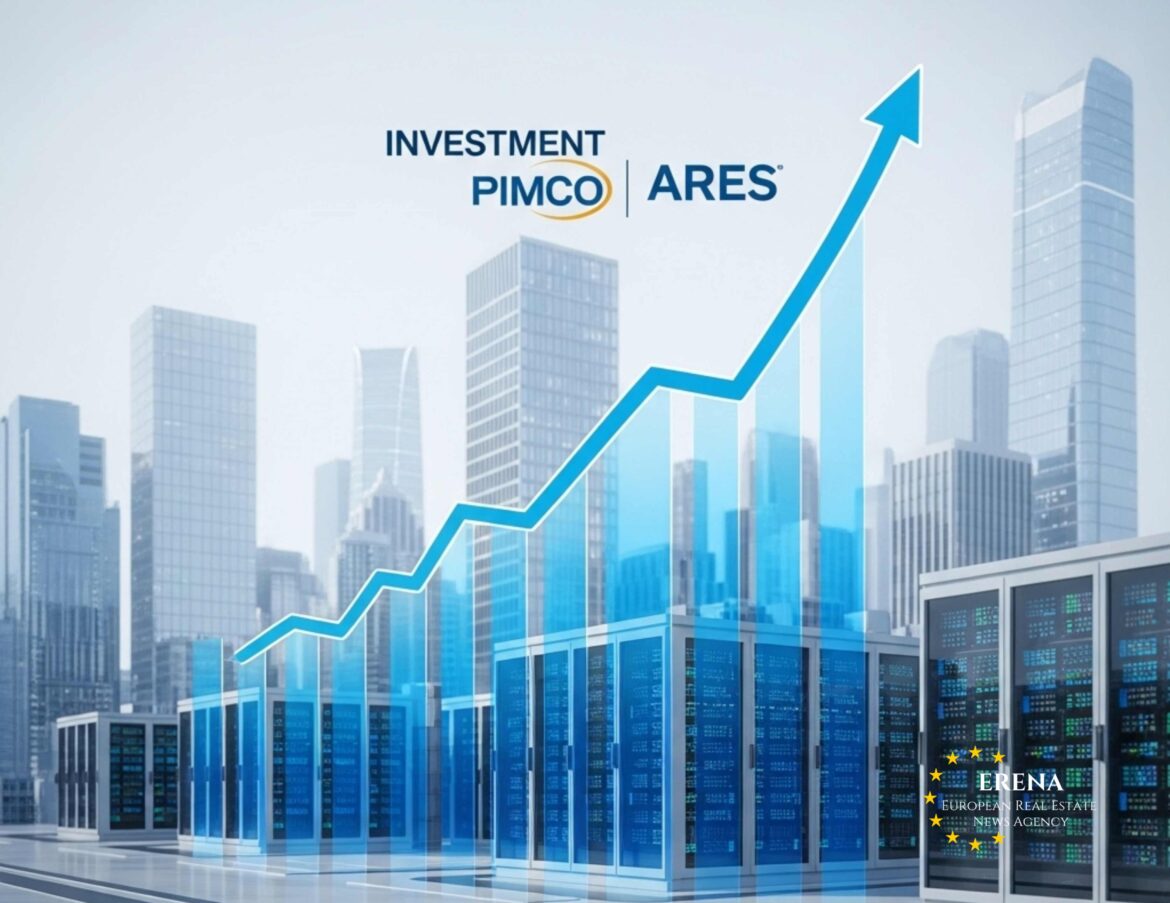The data centre real estate sector is experiencing a remarkable surge in 2025, driven by significant investments from global asset management giants such as PIMCO and Ares Management. Amid ongoing digitalization, the expansion of AI technologies, and the growing demand for cloud computing, data centre properties have emerged as a strategic asset class within institutional portfolios.
Record Growth and Strategic Shift
According to industry analysts, investments in the data centre sector increased by 37% in the first half of 2025 compared to the same period in 2024. American investment firms, particularly Pacific Investment Management Company (PIMCO) and Ares Management, which have traditionally focused on commercial, logistics, and residential assets, are now pivoting toward digital infrastructure.
They view data centres as resilient, revenue-generating, and strategically essential assets—offering both inflation protection and long-term capital growth.
Key Moves by PIMCO and Ares
PIMCO, which manages over $2 trillion in assets, launched a specialized fund in 2025 focused exclusively on digital infrastructure real estate. The fund targets acquisitions and development of data centres in North America, Europe, and Asia, with an initial capital deployment of approximately €1.5 billion.
Meanwhile, Ares Management has ramped up its data centre strategy through its Ares Real Estate Group. In April 2025, the firm acquired a portfolio of five data centres across Germany and the Netherlands in partnership with a European operator, for a total transaction value of around €740 million—one of the largest deals in the region this year.
Drivers Behind the Boom
Several key factors explain the booming interest in data centre real estate:
- Soaring demand for digital services. The rise of AI, cloud computing, streaming media, and remote work continues to drive exponential demand for data processing and storage.
- Stable rental structures. Long-term leases with major tech tenants like Amazon (AWS), Microsoft (Azure), Google Cloud, and Meta provide predictable, durable cash flows.
- Limited supply. Building new data centres requires access to power, connectivity, and regulatory clearance, making these properties hard to replicate.
- Government incentives. Many countries are offering tax breaks and infrastructure support for digital infrastructure, increasing project viability.
Geographic Focus
PIMCO and Ares are concentrating their efforts on both mature and emerging markets. High-density urban hubs with robust energy and telecom infrastructure—such as Frankfurt, Paris, Amsterdam, London, Chicago, Dallas, Singapore, and Seoul—are top targets.
Additionally, markets with growing demand and limited local capacity, such as Eastern Europe and Southeast Asia, are seeing increasing investor attention due to data localization laws and regional demand for low-latency infrastructure.
M&A, Joint Ventures, and Development
Beyond acquiring existing facilities, both firms are actively engaging in ground-up development. In 2025, Ares announced a €500 million joint venture with a UK-based developer to build a hyperscale data centre campus in Manchester. The project will cater to clients in finance, healthcare, and cybersecurity.
PIMCO, for its part, is exploring partnerships with utility providers and telecom infrastructure operators to co-develop integrated sites that offer both efficiency and scalability.
Sustainability as a Core Focus
With ESG principles now central to investment strategies, both PIMCO and Ares are ensuring their data centre assets meet stringent environmental standards. New developments prioritize low-emission cooling systems, renewable energy use, and waste heat recovery.
Ares recently acquired a data centre in Amsterdam connected to the city’s district heating network, where excess heat is redirected to nearby residential communities. PIMCO has committed to performing environmental audits on all assets before acquisition to ensure alignment with carbon reduction targets.
Risk Management and Yield Potential
Recent reports from JLL and CBRE indicate that prime data centre properties in Europe offer annual yields ranging between 4% and 6%, with near-zero vacancy rates. Moreover, rental rates are rising in tandem with digital service demand, making this asset class particularly appealing amid uncertainties in the traditional office sector.
That said, the data centre market requires significant technical expertise. Missteps in site selection, power availability, or tenant requirements can erode asset value. As a result, firms like PIMCO and Ares are enhancing their teams with specialists in engineering, IT infrastructure, and regulatory compliance.
Looking Ahead
Analysts expect data centre real estate investment volumes to continue growing into 2026. Pension funds, sovereign wealth funds, and investment banks are increasingly entering the space, viewing it as a long-term capital preservation strategy.
Future attention is likely to shift toward hybrid models—facilities designed not only for cloud computing but also for AI servers and high-performance GPU workloads. According to PIMCO and Ares, such assets will define the next generation of digital infrastructure.
Conclusion
The backing of global heavyweights like PIMCO and Ares confirms that data centre real estate is no longer a niche asset class—it has matured into one of the most strategically significant segments of the global property investment landscape.
As the world’s reliance on digital infrastructure accelerates, these facilities will be central to the functioning of economies, governments, and corporations alike. In this environment, data centre properties offer both critical functionality and compelling financial returns.

